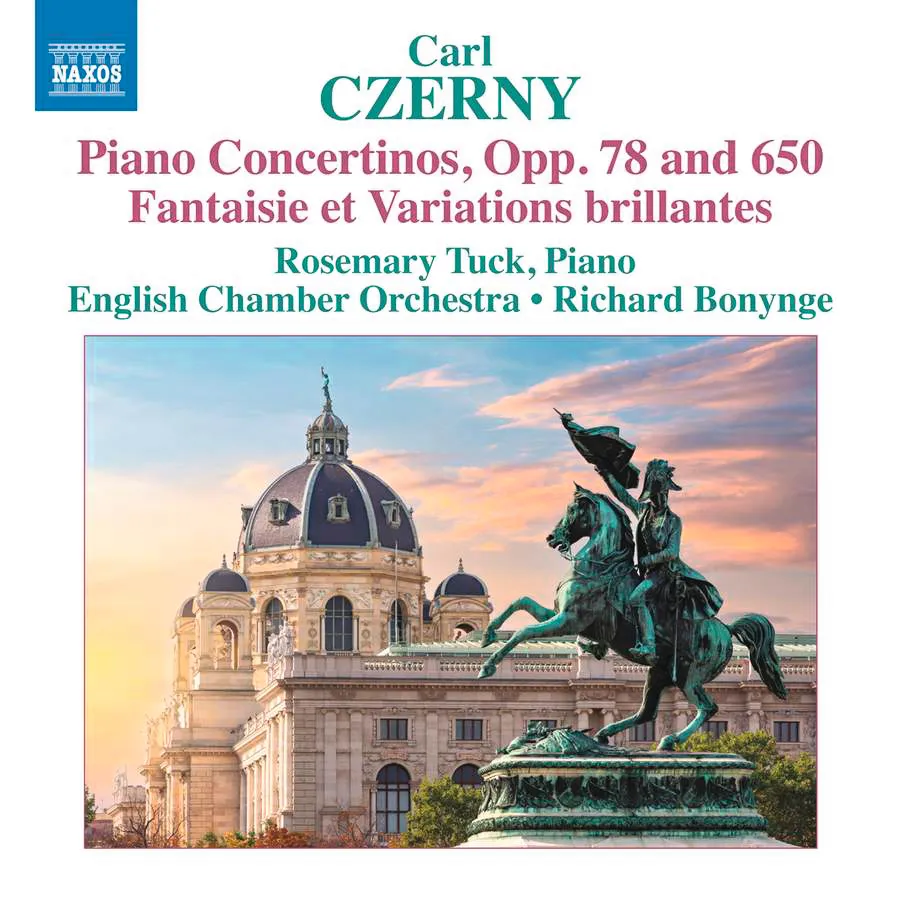
Czerny Piano Concertinos, Opp 78 & 650; Fantaisie et Variations brillantes sur une Romance de Blangini, Op. 3 Rosemary Tuck (piano); English Chamber Orchestra/Richard Bonynge Naxos 8.574458 75:41 mins
Amateur pianists d’un certain age may know Carl Czerny (1791-1857) as the author of those dry-as-dust keyboard exercises they used to avoid if humanly possible. Yet attentive recent listeners may have registered the fact that pianist Rosemary Tuck and conductor Richard Bonynge have released four recordings of his piano-and-orchestra music – this new one is their fifth.
Czerny was, in fact, a prodigy who could play all Mozart’s piano works and many of Beethoven’s before he was ten. He so impressed Beethoven that he was taken on by him as a pupil for three years, and, although being a prolific composer in his own right, he spent much of his adult life promoting Beethoven’s music in preference to his own; at Beethoven’s request he created piano versions of Beethoven’s orchestral works, to allow them to reach a wider public. Brahms respected him, as did Liszt, who played his music. The thousand-plus works he wrote included symphonies, concertos, string quartets and Masses.
The music in this release is superbly accomplished in the Viennese Classical style and, listening blind, any innocent listener would assume that the Piano Concertino, Op. 78 (composed in 1824) was a lost score by Beethoven. Its first two movements inhabit Beethoven’s soundworld, and their gestures are quintessentially Beethovenian; the orchestral writing in the closing Rondo is more Mozartian.
Rosemary Tuck is a fine player with a delicately flexible touch, and in the second Concertino – composed in 1841, and clearly influenced by Chopin – she copes gracefully with every virtuoso challenge the score throws at her.
Michael Church
